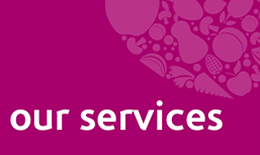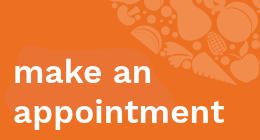
|

|

|

|
Irritable Bowel Syndrome (IBS) / FODMAPs Intolerance
If you suffer from IBS, then changing your diet is likely to result in a huge reduction in the severity of your symptoms.
Learn how to improve the quality of your life by making some changes to your diet.
The low FODMAP diet has proven to be effective in managing IBS in up to 80% or more of sufferers.
Managing your IBS is more than just ‘reducing FODMAPs’.
The Monash University research Doctors and Dietitians recommend consulting an Accredited Practising Dietitian who specialises in gastrointestinal issues for guidance on how to manage the low FODMAP diet.
There are many reasons you will be happy that you talked to Sue about the low FODMAP diet.
The following list includes things Sue can help you with:
- Discovering and understanding what you can eat safely. There will be many foods which you are advised to minimise during the ‘test diet’ period of the low FODMAP diet. This will leave you wondering what you can eat.
- How to make some simple swaps, from foods you currently eat (which contain FODMAPs) to similar foods which do not contain FODMAPs.
- Which brands of foods are suitable.
- Where to shop to find the foods.
- Discussing and providing recipes.
- Talking to you about how ‘strict’ the diet needs to be.
- Talking to you about what to expect from trialling the low FODMAP diet.
- Suggestions of how to make food tasty.
- Suggestions of what to eat for each of your meals and snacks.
- Discussing relevant issues such as what to do about eating out.
- Discussing fibre, how to ensure you are getting enough of the right type of fibre, especially for the long term.
- Discussing how to manage your diet in the long term. The low FODMAP diet is not meant to be what you do for the rest of your life. The low FODMAP diet is a short-term ‘test’ diet only.
Sue will guide you on how to do some FODMAP food challenges, so you know how much of the FODMAPs you might be able to tolerate, and which ones you can reintroduce without upsetting your system.
Learn how to manage your IBS, so it does not ruin your life.
If you have tried the low FODMAP diet, yet still are experiencing symptoms, make an appointment to see Sue, so she can sort you out.









